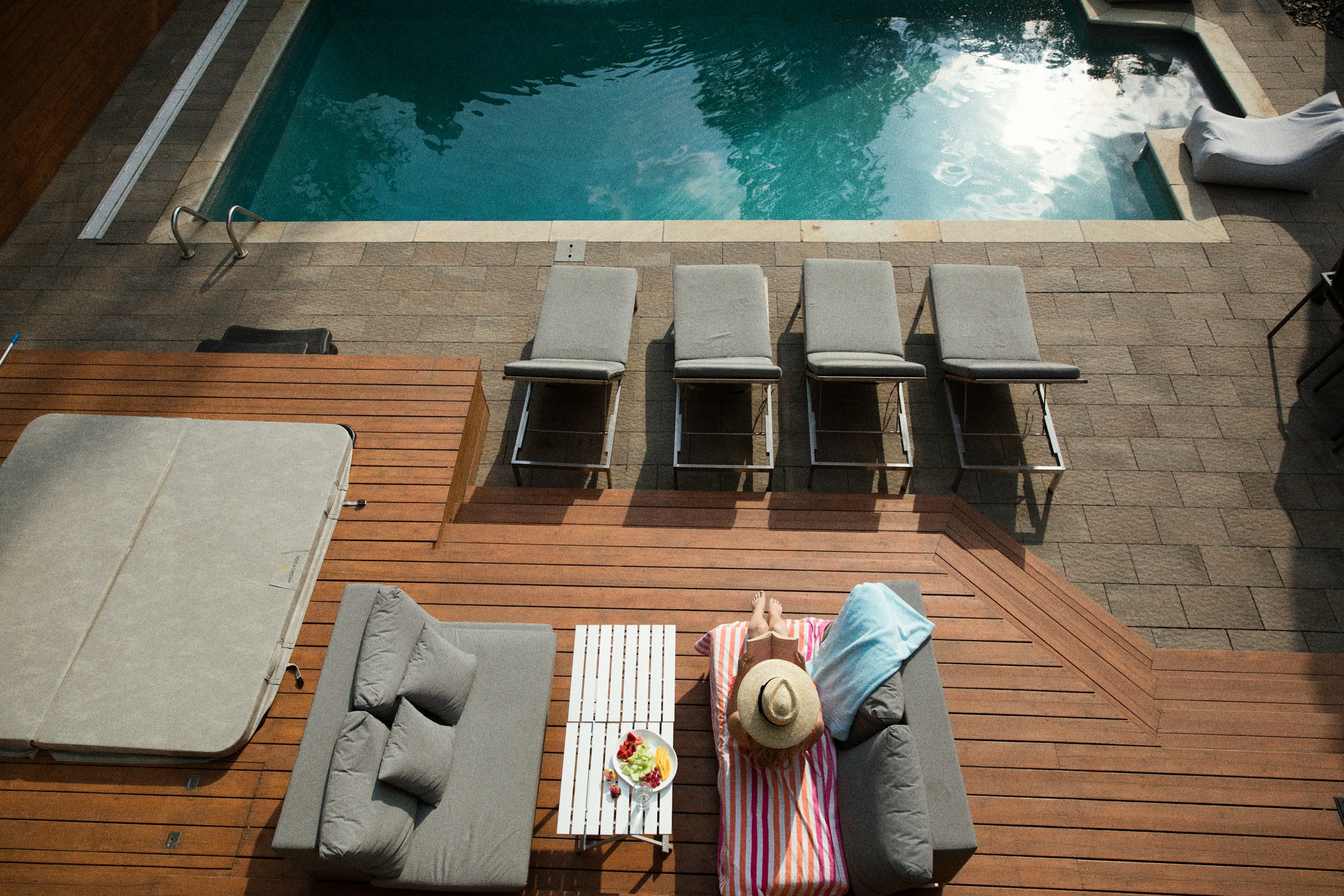As we find ourselves in the latter part of 2024, the question of how to build a durable pool deck capable of withstanding the UK’s notoriously variable weather patterns remains more relevant than ever. Whether you’re planning to install a pool for family fun, fitness, or simply to enhance the aesthetic of your outdoor space, selecting the right materials for your pool deck is crucial. This article will guide you through the best materials that ensure longevity, safety, and beauty, particularly given the specific climatic challenges faced in the UK.
Understanding the UK’s Unique Weather Challenges
Before diving into the materials, it’s vital to grasp the unique weather conditions your pool deck will need to endure. The UK is known for its unpredictable and often harsh weather, characterized by frequent rain, high humidity, and occasional snow. These conditions can quickly wear down inferior materials, resulting in costly repairs and diminished aesthetics. Therefore, the right choice of materials can mean the difference between a long-lasting, visually pleasing pool deck and a maintenance nightmare.
Dans le meme genre : Find the perfect baby floats and armbands for your little swimmer
Composite Decking: A Modern Marvel
Composite decking has gained popularity for its durability and low maintenance. This material is made from a mix of wood fibers and plastic, which ensures that it does not warp, crack, or splinter as traditional wood does.
Why Composite Decking Excels
Composite decking is particularly well-suited to the UK’s weather due to its resistance to moisture. Unlike traditional wood, which can absorb water and rot, composite decking repels water, making it an ideal choice for the wet and often humid UK climate. Additionally, it is resistant to mold and mildew, which can be problematic in damp conditions.
A découvrir également : How can you use geothermal energy to heat a UK home swimming pool?
Aesthetics and Maintenance
Beyond its functional benefits, composite decking also offers aesthetic appeal. It comes in a variety of colors and finishes, mimicking the look of natural wood or even exotic hardwoods. This variety allows you to choose a design that complements your home and garden. Moreover, composite decking is incredibly low-maintenance. It does not require painting, staining, or sealing and can be cleaned easily with just soap and water.
Natural Stone: Timeless Elegance
For those wishing to invest in a more traditional yet durable material, natural stone remains a top choice. Stones like granite, slate, and limestone are not only beautiful but also capable of withstanding the UK’s diverse weather patterns.
Durability and Weather Resistance
Natural stone is inherently strong and durable. It can withstand heavy traffic, extreme weather conditions, and even the occasional frost. This makes it an excellent choice for pool decks in the UK, where weather conditions can vary dramatically from one season to the next.
Maintenance and Aesthetic Qualities
While requiring more maintenance than composite decking, natural stone offers a distinct, timeless beauty that many homeowners find appealing. Regular sealing can prevent water absorption and limit damage from harsh weather. Additionally, natural stone can be sourced in various colors and textures, providing endless design possibilities.
Porcelain Pavers: The Modern Solution
Porcelain pavers are an innovative and increasingly popular option for pool decks. Known for their resilience and aesthetic versatility, these tiles offer a contemporary look while standing up to the UK’s demanding weather conditions.
Key Advantages of Porcelain Pavers
One of the standout features of porcelain pavers is their low porosity. This makes them highly resistant to water absorption, thereby minimizing the risk of cracking or weathering. Additionally, porcelain pavers are resistant to UV rays, meaning they won’t fade over time, even when exposed to sunlight.
Design and Functionality
Porcelain pavers come in a wide range of styles, colors, and finishes, allowing you to create a custom look that matches your aesthetic preferences. They can mimic the appearance of natural stone, wood, or even concrete, offering a high degree of design flexibility. Furthermore, they are low-maintenance and easy to clean, making them a practical choice for busy homeowners.
Pressure-Treated Wood: The Traditional Choice
For those who prefer a more traditional look but still want durability, pressure-treated wood is a viable option. This type of wood undergoes a treatment process that enhances its resistance to decay, insects, and weather damage.
Benefits of Pressure-Treated Wood
Pressure-treated wood is designed to last longer than untreated wood, making it more suitable for outdoor use. It is less likely to warp, crack, or rot, even in the face of the UK’s challenging weather conditions. Furthermore, it is generally more affordable than other materials, offering a cost-effective solution for pool deck construction.
Aesthetic and Maintenance Considerations
While pressure-treated wood requires more maintenance than some other materials, such as composite decking or porcelain pavers, it offers a classic, natural look that many homeowners find appealing. Regular staining and sealing can help extend its lifespan and maintain its appearance. Additionally, pressure-treated wood can be painted or stained in various colors, allowing for a high degree of customization.
Choosing the right materials for constructing a pool deck that can withstand the UK’s weather involves balancing durability, aesthetics, and maintenance requirements. Composite decking offers a modern, low-maintenance solution that is highly resistant to moisture and rot. Natural stone provides timeless elegance and exceptional durability but requires more maintenance. Porcelain pavers present a contemporary, low-maintenance option with high design versatility. Pressure-treated wood offers a traditional, cost-effective solution with the need for regular upkeep.
Ultimately, your choice will depend on your specific needs, preferences, and budget. However, by understanding the benefits and drawbacks of each material, you can make an informed decision that will ensure your pool deck remains a beautiful and functional part of your outdoor space for years to come.











